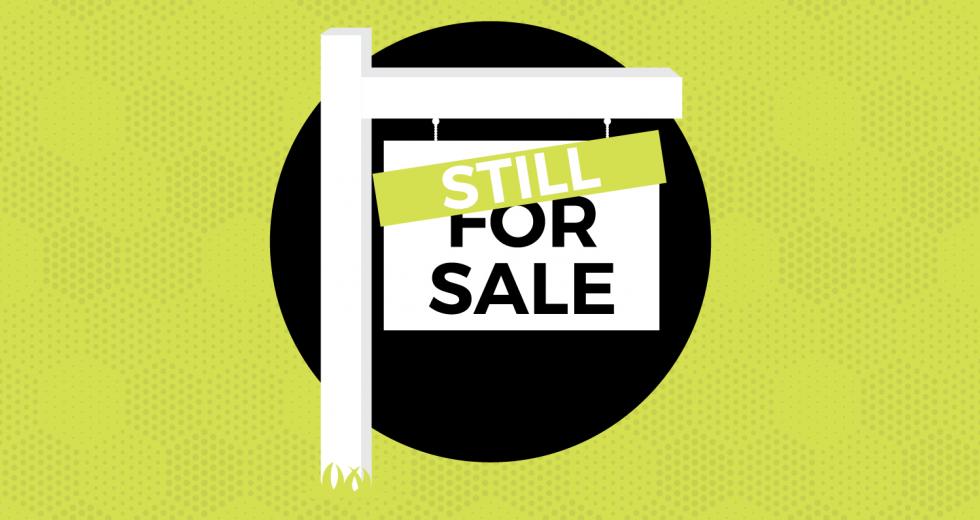You’re finally ready to move. You want your house to appeal to potential buyers, so you paint the exterior, fix up the landscaping and do some additional improvements to the bathrooms. Your house is looking sharp, and you’ve been hearing non-stop how “hot” your neighborhood market is. You’re starting to feel pretty confident about your prospects.
Then it comes time to meet with your real estate agent to price your house, and you blow it. Your agent suggests $455,000, but you insist on $500,000. You’ve just overpriced your house — and that means you’ve made it a lot harder to sell.
Sellers today are reading sizzling headlines about the feverishly hot market — and they end up wanting to price based on the headline instead of their neighborhood. They also hear stories of Bay Area buyers being a dominant force in Sacramento’s real estate market and price for wealthy tech workers in San Francisco, instead of actual buyers in Sacramento. In short, many sellers are growing out of touch with real local buyers who are buying the bulk of properties.
In the Sacramento region, we are seeing hundreds upon hundreds of price reductions every week. While it’s normal for some reductions to occur when the hot spring market cools, we have to stop and realize what’s also going on: The market is softening for the season, and sellers need to adjust their prices rather than price like it’s still the “hot” spring.
Buyers today are pickier than ever. You’d think that wouldn’t be the case because we have a housing shortage, but it’s the truth. Despite low inventory, buyers aren’t so desperate to get into contract that they’ll pay anything. They have this sense of wanting to pay a fair price for a house, and they’re willing to be patient to find the right home, too. They’re also sensitive about condition and location, so if they see a home that doesn’t quite cut the mustard, buyers will just wait for something else to come instead of pulling the trigger. Keep in mind many of today’s buyers also went through a foreclosure or short sale in the past, which fuels a desire to make good real estate decisions now.
Today’s buyers are also more educated than ever about real estate. I’m not saying they always nail the value perfectly, but they study the market and become quite fluent in price trends. Not only are buyers getting emails from their agent for every new listing in the area, but they’re looking at Metrolist, Zillow, Redfin and real estate blogs — immersing themselves in the market, and taking note of what is selling and what is not. It’s easy to see how, with this level of attention, buyers are more able to sniff out overpriced properties.
Sellers get so fixated on the idea of a fiery market that they price for that one “unicorn” buyer who’s going to mysteriously pay more than anyone else.
I saw this dynamic in my own household when my wife and I bought a house a few years ago. My wife doesn’t even work in real estate, so I was surprised with her high real estate IQ. She’d say things like, “This property is way overpriced,” or “This one is too low and it’s going to get bid up.” And she was 100 percent correct because she was paying such close attention to the market. She knew her stuff. Most likely, your potential buyer does too.
So here are some tips for pricing your house correctly:
Listen to your agent: Sellers often struggle to listen. Sorry if that sounds too direct, but sellers who overprice usually ignore pricing advice from their real estate agent. The property gets listed too high and the market clearly doesn’t bite, yet the seller still won’t listen to suggestions to lower the price. My advice? Don’t be that person. Remember: Overpricing is about the fastest way for your house to sit on the market instead of sell.
Don’t rely on Zillow: This is a big one. The online-valuation site Zillow states it is a starting point or “ballpark” value for consumers, but I find many sellers treat Zillow like it’s absolute truth. My advice? Check Zillow, but give the most weight to similar sales in the neighborhood.
Forget the unicorn: Sellers get so fixated on the idea of a fiery market that they price for that one “unicorn” buyer who’s going to mysteriously pay more than anyone else. In Sacramento, this unicorn is a Bay Area resident with cash, and this mythical creature will supposedly ignore all recent sales and listings, magically offering 10 percent more than anything. Price for the market instead of the unicorn. Only 15 percent of sales in the region are cash right now, and that’s down half of what it was five years ago.
Use comps, not sales: The most common mistake I see is pricing based on a sale down the street that really isn’t comparable. So a seller says, “Yeah, I know that house is totally remodeled with a pool, and it’s also 500 square feet larger, but I think my house will sell for the same amount.” Really? Would you honestly pay the same amount for both homes? Probably not. I suggest you price according to similar homes because those are the “comps” buyers look at.
Businesses have to be in tune with consumers. That’s a no-brainer, right? It’s Business 101. Yet it’s also Real Estate 101 — and buyers are telling us they want to pay a fair price. Sellers would be wise to remember that right now.



